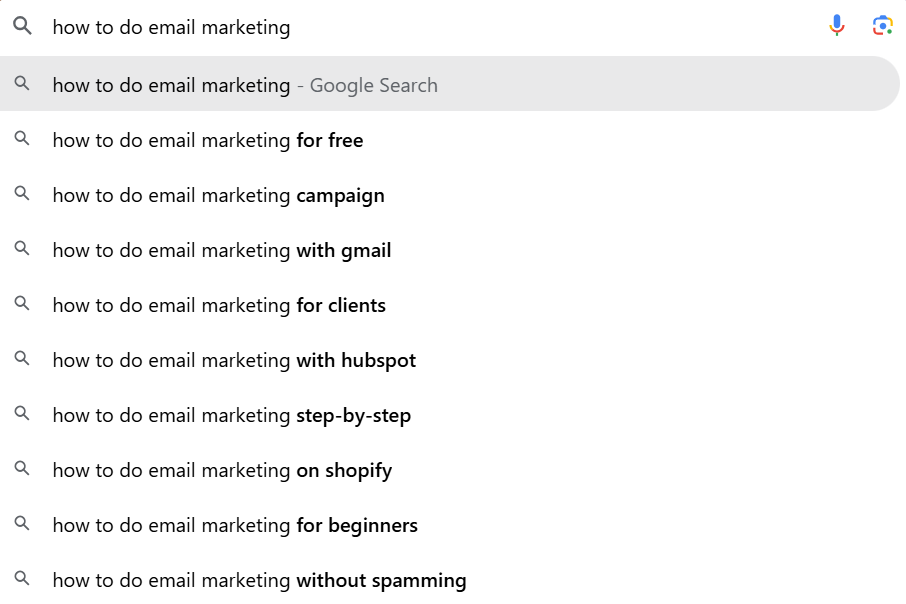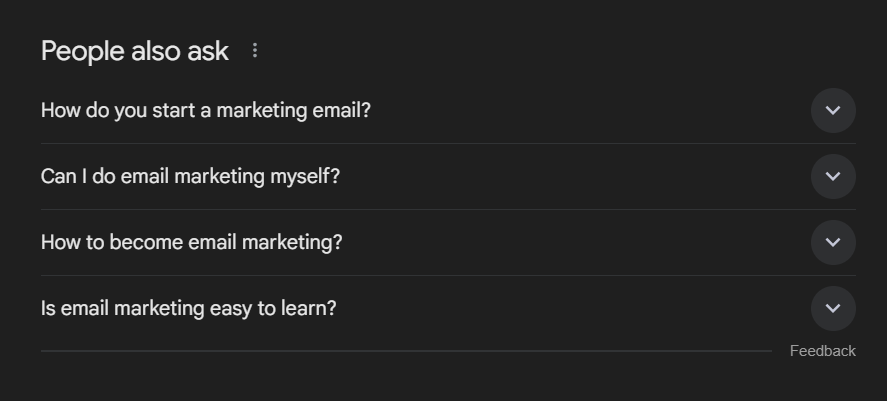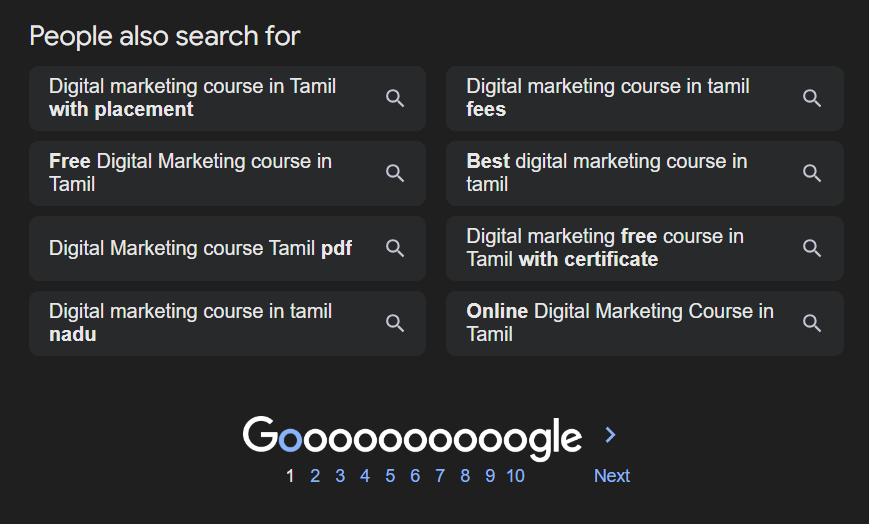How To Do Keyword Research To Find Better Keywords For SEO?
Nevin Balamurugan
May 23, 2025

How To Do Keyword Research To Find Better-Performing Keywords?
You could be writing content, publishing consistently, and still not seeing results. The truth: without solid keyword research, your content isn’t even reaching the people who need it most. So, no visibility means no traffic, no clicks, no conversions.
Keyword research is the backbone of any SEO strategy. Without it, you won’t know what your audience is searching for, which terms align with their intent, or what you can realistically rank for.
That’s why this blog shows you exactly how to discover high-intent, low-competition keywords from places most people overlook – not with the usual keyword research SEO tools.

Why is Keyword Research Important for SEO?
Creating content without knowing what people are searching for is like shouting into the void – no one’s going to hear you. That’s where keyword research comes in. It helps you focus on the search terms your audience is actively using, making it far more likely they’ll find your site through Google and visit you.
But keyword research isn’t just about finding high-volume search terms. It’s also about identifying keywords your site can realistically rank for. For instance, take a local cake shop to appear in search results in a highly competitive market.

Image Credits: Google
By this, you can note that keyword research can reveal whether a term is too competitive or simply not worth targeting.
Can I Rely Only On SEO Tools For Keyword Research?
First, let’s see what keyword research is.
Keyword research is the process of finding and analyzing the exact search terms or phrases your target audience types into Google’s search engine. This shows you which keywords are popular, which ones you have a chance at ranking for, and what kind of content Google wants to show to searchers in the results pages (SERPs).
You can carry out keyword research on a global level, nationally, and locally. So, keywords vary depending on your demographics, target audience, and so on. However, it helps you tap into the exact terms people are searching for, so you can connect with the right customers at the right time.
Most people rely heavily on SEO tools (Google Ads Keyword Planner) for keyword research – but those tools are helpful, but you’re missing out on something bigger. Keywords are everywhere – in forums, FAQ’s, social media conversations, customer reviews, and even your competitors’ content. This type of keyword research helps you to listen to how your audience talks about your niche across the internet.
To truly excel at keyword research, you must go beyond standard SEO tools and actively engage with the spaces where your audience interacts online. By doing so, you’ll discover keywords that are both strategic and easier to rank for.

How Do You Find Better Keywords Everywhere Using Keyword Research?
When used effectively, SEO keywords can help you rank, drive sales, attract the right audience, and strengthen your brand. That’s why it’s important to invest your time and effort in finding the right keywords.
Here are a few strategies to find keywords that can make a real impact.
1) Google’s Autocomplete
When it comes to keyword research, diving into a manual Google search is one of the simplest yet most underrated strategies. While SEO tools (Google Ads Keyword Planner) give you data, Google shows you the search terms of your audience. And when you use it right, it reveals highly specific keywords.
Google Autocomplete is a feature to type your search query. What shows up next are frequently searched phrases that users are actively looking for. These suggestions are long-tail keywords – which are more specific, easier to rank for, and usually aligned with strong search intent. Here is what you need to do,
- Type your seed keyword (email marketing) and see what pops up.
- Try variations like questions (how to, best way to, why does) or different endings (for beginners, strategy 2025).

Through this, you can get more keyword suggestions, but autocomplete works differently on mobile and laptop – so check on both to find specific keywords.
2) Featured Snippets
Another way to manually find keywords on Google is featured snippets – which appear at the top of the page. It is different from other results that contain more information. By searching your niche-related terms and seeing which content is featured, you can figure out exactly what kind of structure, format, and keywords are getting ranked.
Look at what competitors are ranking for and use that as a roadmap. Tools like SEMrush can speed this up by showing you which featured snippets your competitors own, but even doing it manually gives you a ton of insight.
Once you’ve compiled your competitors’ featured snippets, find the keywords they are ranking for and add those to your keyword list.
3) People Also Ask
Then there’s the People Also Ask section, which is another place to find SEO keywords. For some searches, Google will display related questions people ask:

Image Credits: Google
Each question it shows is something people genuinely want answered – and when you click on one, more questions appear, giving you content ideas. It’s perfect for FAQ sections, blog posts, or even video scripts. And by answering these questions clearly and concisely, you increase your chances of being featured in that section too.
4) Related Searches
The related searches section at the bottom of the SERPs features related keywords that users input into the search bar. You can look for relevant SEO keywords to add to your content strategy.
If you scroll to the bottom of any search page, you’ll see the Related Searches section. These are often overlooked, but they provide powerful insight into keyword variations and user intent. They can inspire subtopics, blog titles, or even spark ideas for pillar content.

Image Credits: Google
5) Use Reddit or Quora
Reddit and Quora are platforms to do keyword research to reflect how your audience actually speaks. If you search your keyword along with Reddit or Quora on Google, you’ll find real conversations, questions, and concerns from your niche. This gives you long-tail keyword ideas to create content that truly resonates.
Learn SEO Strategies to Find Better Keywords To Rank Higher on Google
Keyword research is not just confined to keyword research tools. You can find keywords everywhere if you know where to look. So, we have provided you with several strategies to find keywords.
While looking for keywords everywhere can be time-consuming, it’s the only step to gain a competitive edge. If you’re looking for SEO services, contact NB Marketing Solutions to enrich your website organically.
Or if you planned to learn SEO strategies, reach us to enroll in our upcoming digital marketing course in Tamil to upgrade yourself with the latest trends and SEO algorithms work in 2025.
Recent Posts
Have Any Question?
- (+91) 938-542-1049
- info@nbmarketingsolutions.in
Categories
Make Appointment
Confused Over Choosing The Right Services For Your Business?
Tamil Nadu, India
- Near TMB Bank, Anjugramam post, Kanyakumari 629401
- info@nbmarketingsolutions.in
- (+91)93-8542-1049
